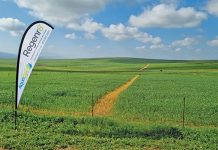Proposed programmes that will pay landowners and users for water-friendly farming practices could soon take off. Roelof Bezuidenhout reports.
The South African National Biodiversity Institute (Sanbi) is appointing a high-level technical adviser to focus on water and payment-for-ecosystem services (PES). This will fall within the Grasslands Programme, a public/private/civil society partnership run over six provinces.
The threatened Grasslands Biome covers nearly one-third of South Africa’s land and provides ecosystems services essential for economic development. But this development, including cropping, threatens the grasslands, 65% of which are used for grazing.
Experts advocate paying mountain communities for the ecosystem services they supply. This will augment water supplies, as better land management in the catchments improves water quantity and quality.
Paying landowners to manage mountain grasslands effectively has been proven efficient and equitable. A trade in ecosystem services in marginal agricultural areas will provide more services, reduce water vulnerability, create jobs and improve land quality. This can stimulate the development of other economic options, such as tourism, game farming, improved grazing systems and harvesting natural products. The Global Environment Facility (GEF) has already approved US,3million (R67,5 million) in funding for a five-year PES programme, through the United Nations Development Programme (UNDP). Working for Water has also allocated funds for pilot projects, starting in the Maloti Drakensberg mountains, which lie within the grasslands and are the country’s largest water catchment. The Upper Thukela is seen as a key area to start the projects.
One of the PES options could be a forestry company that adopts a water-neutral concept (reduces its water use and tries to balance it with projects that increase clean, fresh water runoff) and help a community group within a catchment improve its catchment management.
Major enrichment
Research in the Upper Thukela and Umzimvubu catchments confirms biennial spring burning, recommended stocking rates, and restoring degraded grasslands can reduce run-off and summer storm flows. This significantly reduces soil erosion and increases soil carbon content.
Better management and restoration can shift destructive summer river flows, when water is abundant, to winter when water is scarce and value can be added to it. Reduced storm flows also diminish erosion and the sedimentation of water infrastructure, while improving productivity and carbon sequestration in the associated land.
In the Thukela, good management could add 12,8 million cubic metres to winter river baseflows, with a sales value of R3,8 million a year. This could boost the economy by R18 million to R88,7 million a year. In the Umzimvubu, this could be 3,9 million cubic metres with a sales value of R2,7 million a year. This could add R5,7 million to R27,1 million to the economy annually.
These two catchments could generate 1 800 restoration-related jobs a year for the first seven years, and almost 500 permanent jobs in catchment management.
The Department of Water Affairs and Forestry could also help establish a large-scale catchment management public works programme to create 50 000 to 80 000 jobs.
The Grasslands Programme is getting involved by:
Incorporating biodiversity management into agricultural laws, policies and guidelines.
Developing a certification system and marketing programme to encourage red meat producers to farm in environmentally friendly ways.
Promoting stewardship among landowners and users through demonstrations. |fw








